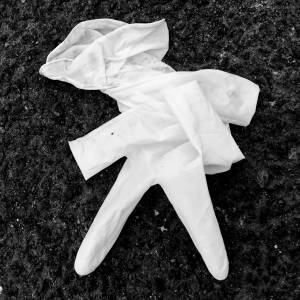Phrontistery
That's the word my old friend Anthony found for this place, Seapoint, where I used to park regularly to sit and write or just stare out to sea. The word (from the Greek, phrontistes, 'a thinker'), means simply 'thinking place'. I believe it is a monastic term, suitable for the area, Monkstown, in south Dublin, just around the corner from Blackrock, where I live.
Normally, I would come here during the afternoon for an hour or two. Cold days were best, when there were only a few hardy swimmers and I could stay awhile without arousing curiosity (or feeling that I was arousing curiosity) from the lucky souls who dwelt behind the big, sea-lit windows of the Victorian terrace behind me.
The squat stone tower on the right is one of the numerous 'Martellos' that dot the coastline, built in the 19th Century, from the time of the Napoleonic Wars. What has become known as Joyce's Tower is located a little farther south, in Sandycove in Dún Laoghaire. Near that tower is another little cul de sac (another phrontistery) with a good view of the sea. I wrote a little piece about it for RTE's 'Quiet Quarter' programme a number of years ago. Though written for a different place and a differnt time of year (winter), most of what I said, in the following passages, could apply to Seapoint, especially on the cool, rainy evening I took the above photogrph:
'Of the beach-going crowd, Robert Frost wrote:
They cannot look out far.
They cannot look in deep.
But when was that ever a bar
To any watch they keep?
Of course, Frost may have been aligning this "look" with another horizon, as the word 'watch' suggests. And technically, he's right about not being able to look out far. At sea level, after only a few miles our planetary curve severs all lines of sight surely as a blade. But those miles are marvelously unobstructed. The watcher's gaze is given leave to sweep, dive, soar... Or perch on a liner or big container ship, stationary as an oilrig. Then you glance up after only fifteen minutes and its over the line, history.
I've grown used to knowing the sea is there. Not far away, behind the props of bricks, glass, trees, off to the side. A blue zone, to complement what's left of our green one, the soft graph of the Dublin Mountains.
My need to look at the sea is easily assuaged. My dependence requires only that I find, every now and then, somewhere like this cul de sac, and stay long enough for the mind's restless, cluttered eye to find its counterweight.
There is something of this equilibrium to be found in any waterway, the banks of The Grand Canal in Dublin for instance, where Patrick Kavanagh underwent what he described as his spiritual birth. Something in the rhythm and play of light on water keeps us watching, keeps us hopeful.
It's after five now, deepening to nightfall. I'm looking at two broad bars of blue, the upper one slate, the lower one almost lead. Hard to see any movement, except when the darker bar splits into creamy ruffles on three turf-dark rocks. I'll be going soon. I've almost had my fill. A good, sloshing bucket-full, which I can take home, and place on whatever mental scales register these things.'
- 1
- 0

Comments
Sign in or get an account to comment.


